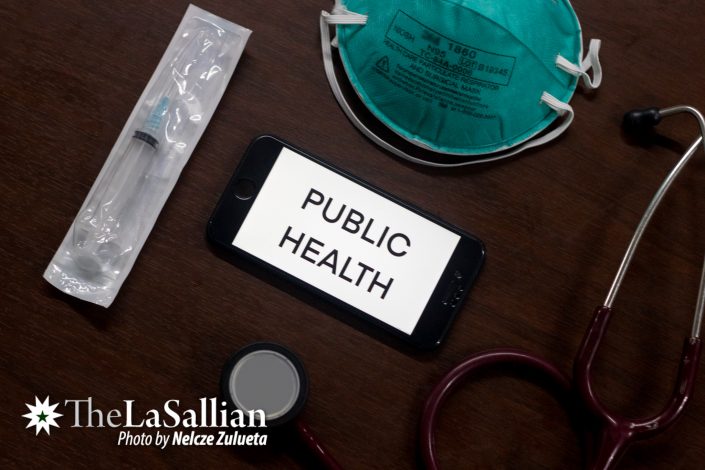“Can we handle another pandemic?”
The posed question was addressed last October 10 at the Science Legislative Forum on the Philippine Virology Science and Technology Institute, a webinar program arranged by the National Academy of Science and Technology (NAST). The topic of this webinar is centered around House Bill No. 9559, a bill seeking to establish the Virology Institute of the Philippines (VIP) and allocate appropriate funds for such an establishment.

With the supporting statements of several congressmen and senators as well as the technical and supportive opinions from five reactors of various fields, the case for the necessity of the VIP is made. Academician Rhodora Azanza, chairperson of the Biological Sciences Division of NAST, hopes that the bill, centered around viruses, vaccines, and public health, “brings science and technology closer to the people” and to “advise legislation.”
Research, therapeutics, and vaccines
In essence, the VIP seeks to become the country’s premier research and development institute in virology. Director of the Industrial Technology Development Institute of DOST Dr. Annabelle Briones adds that it aims to boost the country to global competitiveness, prepare it for future epidemics and pandemics, and promote the development and accessibility of safe, homegrown technologies. These technologies include anti-viral therapeutics and vaccines based in the Philippines.
One Health—beyond just public health
While the reactors explain their respective cases on the need for the VIP, they share a common idea around a “transdisciplinary approach” known as One Health. According to the World Health Organization (WHO), this concept is an integrated, unified approach to combine healthy people, healthy ecosystems, and healthy animals. Dr. Noel Miranda, an independent regional consultant, expounds on the concept of One Health by laying out a plan that redefines the roles of the Department of Health (DOH) and the VIP under the Department of Science and Technology (DOST).
“One sector alone cannot address public health and security,” says Miranda, highlighting the importance of including multiple sectors to uplift health security. Some of his recommendations for a more defined role for DOH and DOST require that the VIP is responsible for much of the development of vaccines and therapeutics. Meanwhile, the DOH shall be connecting such developments to the public by administering services, products, and information. This is just one example of how a broader coalition of academia, industry, government, and NGOs could tackle the technical and social consequences of viral outbreaks.
Refocusing on the wild
Beyond human health, the One Health concept is inclusive of healthy ecosystems and animals. The VIP could unlock new potential in the research of zoonotic viruses–those that are transmitted between animals and humans.. Dr. Phillip Alviola, an associate professor of the Institute of Biological Sciences in the University of the Philippines Los Baños, states that the five deadly or widespread viruses over the past two decades have all been from animal sources. Dealing with research on zoonotic viruses, Alviola expresses concern for potential epidemic and pandemic viruses from animals, commenting that the country is limited in detecting them. He urges that larger-scale government action is needed for such situations.
On the camp of the animal and ecosystem aspect of the VIP, Executive Director of the Philippine Eagle Foundation Dennis Salvador speaks on behalf of the dangers of zoonotic viruses on precious Philippine eagles. While this may not be as pressing as dangerous pandemics, Salvador mentions the failures of previous administrations when it comes to handling deadly viruses. “We have already failed to be proactive, [and are] now only reactive,” he says, noting mounting concerns regarding Philippine eagles since 2009 and the 10-year wait for the solution, which finally came to pass around 2019.
Call to action
Ultimately, as synthesis speaker and associate professor of the Department of Medical Technology of University of Santo Tomas Dr. Maria Pineda-Cortel puts it, the VIP is “a link between so many industries and bureaus, from animal, to industry, to [the] public to work together.”
Now, it is just the call to action to pass this “VIP bill.” With noteworthy senators and congressmen such as Sen. Christopher Lawrence “Bong” Go and Hon. Carlito Marquez already in support of this bill , there is already the idea, the bill, and a plan. Monumental legislation such as this would not only aid institutions against future outbreaks, it would also equip them to be independent and competitive among both our regional ASEAN neighbors and the international community.
